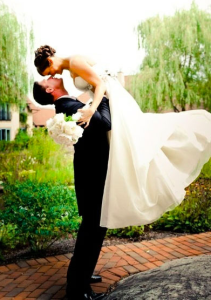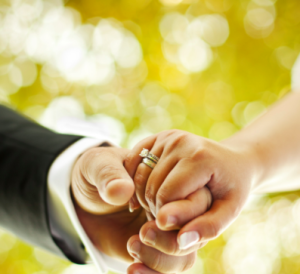 By now many of us have seen the viral article from the New York Times – “Why You Will Marry the Wrong Person.” The title is misleading IMHO, considering the nuance and depth the writer has to address a really important challenge of long-term relationships.
By now many of us have seen the viral article from the New York Times – “Why You Will Marry the Wrong Person.” The title is misleading IMHO, considering the nuance and depth the writer has to address a really important challenge of long-term relationships.
It’s not that relationships – marriage in particular – don’t work, or that we will inevitably choose the wrong person. It’s that we don’t understand the emotional complications that come with partnership.
I agree that many of us have a romantic notion of marriage and partnership, especially in the beginning when we are setting out into unknown territory with our love, eager to embark on a new life together. There is something magical and mystical about throwing caution to the wind in the name of love. I can’t deny that to some extent we all have this temptation – and it’s what we all look for when we’re dating. We want to be swept away by feeling. We want chemistry, passion, and deep love. These are all important things that lead up to embarking on the long-term partnership journey.
What we tend to shy away from is that eventually along the blissful path of marriage, your partner will hurt you, disappoint you, annoy you, and frustrate you.
And you will do the same to them. While we might understand this in the abstract, we don’t know it until we are living day to day with the same person. Those same little things that annoy you about your partner will happen again and again. And you will have certain faults that you try to hide, that you are ashamed or afraid of, that will rear their ugly heads. And your partner will get frustrated, annoyed, hurt. It’s inevitable, this revealing of weaknesses over time. At some point, you have to accept that your partner has faults that you must live with. And so do you.
Just like Don Draper in Mad Men kept trying to be a better man, to do things differently, to break from his past and his weaknesses, he could never quite escape. He kept making the same bad choices, landing in the same situations. He was an extreme case, but here’s the point: we all tend towards what is familiar, especially when it comes to our weaknesses. We know what presses our buttons, but we feel powerless to change. We all make the same mistakes again and again.
But here’s where I think the article goes a bit pessimistic. Instead of just accepting that a relationship will fall short of expectations, that we have weaknesses and should just expect to be disappointed and more realistic about the downside, we should have a different approach.
 Where is compassion in this discussion?
Where is compassion in this discussion?
Compassion is the place where you can let go of your frustration and anger and just have a little space to breathe. It is something you can extend to yourself and to your partner when you are angry, annoyed, frustrated. It is something that allows you room to let go of judgment, of thinking that things should go a certain way.
We all have weaknesses. We all fail sometimes. But we also muster courage. We want to change, to grow, to be different than we were yesterday when we had the meltdown in the kitchen. In other words, yes – you will get angry at yourself and your partner from time to time, they will let you down, and you will let them down – but compassion is the one thing that will help you move past it.
I’m not trying to be all Pollyanna. Partnerships are hard. We can get fearful of what we stand to lose, or how deep our flaws can go.
But what if our vulnerability cultivates a closeness with our partners? What if exposing ourselves – our weaknesses – strengthens our relationships?
As Brene Brown has said in an interview with Spirituality & Heath: “there can be no intimacy—emotional intimacy, spiritual intimacy, physical intimacy—without vulnerability. One of the reasons there is such an intimacy deficit today is because we don’t know how to be vulnerable. It’s about being honest with how we feel, about our fears, about what we need, and, asking for what we need. Vulnerability is a glue that holds intimate relationships together.”
And here’s some more advice from Ms. Brown to leave you with...
“We cultivate love when we allow our most vulnerable and powerful selves to be deeply seen and known, and when we honor the spiritual connection that grows from that offering with trust, respect, kindness and affection.
Love is not something we give or get; it is something that we nurture and grow, a connection that can only be cultivated between two people when it exists within each one of them – we can only love others as much as we love ourselves.
Shame, blame, disrespect, betrayal, and the withholding of affection damage the roots from which love grows. Love can only survive these injuries if they are acknowledged, healed and rare.”
XO,
Kelly
About Kelly Seal
Kelly is a freelance writer based in Los Angeles, CA. She blogs about dating, relationships, personal growth and what "healthy living" means to her. You can follow her on Google+, Twitter @kellyseal or through her website www.kellyseal.com.

Leave a Reply